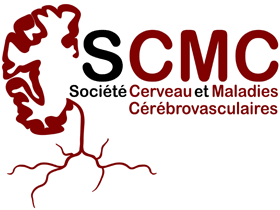Félications au nouveau bureau qui a été élu pour 2 ans lors de la réunion du conseil d'administration de la SCMC du vendredi 27 juin 2014:
Henri Schroeder, président
Carine Ali, vice-présidente
Pascale Schumann-Bard, Trésorière
Valérie Besson, secrétaire
Un grand merci à l'ancien bureau:
Henri Schroeder, président
Myriam Bernaudin, vice-présidente
Pascale Schumann-Bard, Trésorière
Valérie Besson, secrétaire
We are seeking for candidates to apply for a Marie Curie Fellowship under the 2014 H2020 Marie Curie Actions program. Considering that this program promotes mobility and cooperation between European countries, applicants’ previous research activity shall be developed in an EU member state other than Spain. Candidates must hold a doctoral degree in Biology, Neurosciences, Physiology or related sciences at the time of the proposal deadline (September 11th 2014) or have at least four years of full-time equivalent research experience, as specified in the call:
Marie Curie Individual Fellowships (MCSC-IF-2014-EF).. (lire la suite)
Description: Neurorepair Team (www.lin-bcn.com) at the Neurovascular Research laboratory (Vall d’Hebron Research institute, www.vhir.org, in Barcelona) is looking for a PostDoctoral Candidate to join the lab. during spring 2015. Our goal is to study both angiogenesis and neurogenesis in experimental and human studies to improve brain function and neurorecovery after stroke from a translational perspective. The candidate will participate in one project studying cellular and molecular markers of angiogenesis in a cohort of stroke patients under rehabilitation therapy, and posterior translation of the results into cellular and animal models. Also the collaboration with other projects of the lab. is expected.
.. (lire la suite)
Le prix de thèse de cette année a été remis à Maxime Gauberti lors du colloque annuel de la SCMC qui s'est tenu à Paris le 25 mars 2014 dans les locaux de la CAHPP.
.. (lire la suite)
Voir le document lié
Visiter le lien
Dr. Christian Stockmann, MD,
Paris- Cardiovascular Research Center - Inserm U970
Team 11 – Inflammatory vascular remodeling and microenvironmental homeostasis
56 rue Leblanc, 75015 Paris
Tel: 0033 1 53 98 80 11
e-mail : christian.stockmann@inserm.fr
The research team "Inflammatory vascular remodeling and microenvironmental homeostasis" is looking for a postdoctoral fellow to lead a research project on myeloid cell-driven angiogenesis during tumor relapse after chemotherapy using different mouse models of cancer. This postdoctoral position will be based in PARis Cardiovascular research Center. It will start as soon as possible and will be initially limited to 12 month with a possible extension. There is no nationality restriction. The working language will be French and/or English.
In the context of chemotherapeutic treatment, it is becoming increasingly recognized that the architecture of the tumor vasculature and its functionality, rather than blood vessel counts, determine the therapeutic outcome by controlling drug delivery as well as microenvironmental conditions. In most tumors, blood vessels significantly differ from normal vascular networks and are characterized by inefficient blood supply despite high vasculature density. Hence, a better understanding of mechanisms involved in the regulation of drug sensitivity is indispensable for improved cancer treatments. Vascular Endothelial Growth Factor (VEGF) is a major angiogenic factor and we have shown that deletion of VEGF in tumor infiltrating myeloid cells leads to improved functionality of intratumoral blood vessels, alleviated tumor hypoxia and increased susceptibility to cytotoxic agents in mouse models of cancer. However, most of the studies focus on the initial response of tumors to therapy, and preclinical studies on avoidance of tumor relapse are lacking... (lire la suite)
